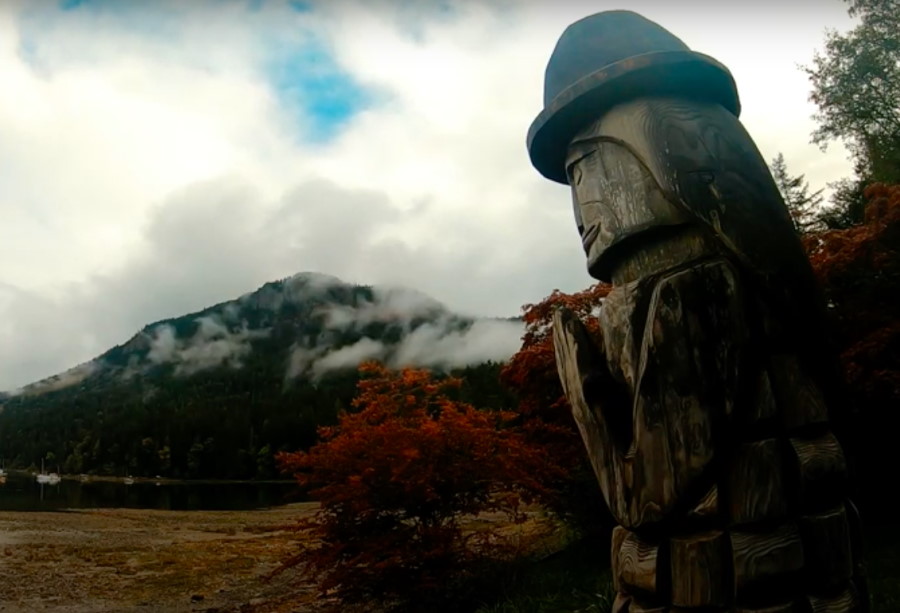The Gulf Islands School District (SD64) partnered with the First Nations Health Unit from the Vancouver Island Health Authority on a Healthy Schools BC Regional Grant. The intent of the grant was to provide students from Gulf Islands Secondary School and Salt Spring Middle School with the opportunity to explore Indigenous Ways of Wellness.
In February 2020, the team held a celebration to launch the new Indigenous Education Enhancement Agreement with support from the First Nations Health Authority. The Indigenous Education Enhancement Agreement supports cultural revitalization, integration of Indigenous knowledge systems, oral histories, laws, protocols, and connections to the land for the benefit of everyone. Approximately 350 youth, adults, Indigenous elders, and members of the local community participated in the cultural event and feast.
The group also organized “Youth on the Land” events for Indigenous students. In October 2020 and June 2021, Indigenous students from Gulf Islands Secondary School spent a day on the land at Xwaaqw’um(Burgoyne Bay) with Elders learning about Indigenous culture and traditions. Throughout the spring of 2021, Indigenous students in Grades 7 and 8 from Salt Spring Middle School spent a half day each once a weekbuilding relationships with the land, with Elders, with their Indigenous support worker and with the Principal of Indigenous Education to help ease their transition into high school. The students engaged in traditional cultural activities and were also mentored by two Indigenous youth and one Indigenous Knowledge Keeper.
Indigenous youth built resiliency through the “Youth and the Land” projects from learning about the foundation of culture, community, place, and traditional ways in which Indigenous peoples have tapped into their natural health and wisdom for generations. They also discovered a place where they felt they belonged on traditional land among Elders and Knowledge Keepers who showed them the way of traditional knowledge and living in harmony with our natural environment. In addition, these Indigenous youth discovered that they have a voice and that they have much to share with their non-Indigenous peers. The students’ non-Indigenous peers who were invited to the events had the opportunity to witness the richness and wisdom of traditional culture first-hand.
